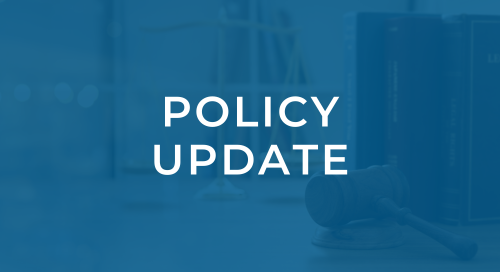
July is regulation time and CMS did not disappoint. Below is the highest level review. More details will come out and we want your feedback as we formulate our comment letter to CMS on this proposed rule. In the meantime, be sure to check out our recent webinar hosted by SVP, Policy & Economics, Travis Broome, MPH, MBA.
2023 Proposed Physician Fee Schedule
Rates
The base conversion factor is lowered by three percent due to the expiring stimulus from COVID-relief bills. Due to the continued emphasis on increasing the reimbursement for E&M services, the net effect on primary care is roughly zero percent.
We will be working with the medical societies to get a higher update from Congress to reflect the realities that inflation is imposing on your practices. There is nothing CMS can do under current law so all eyes will be on Capitol Hill.
Telehealth
Consistent with laws passed by Congress, CMS will keep current telehealth flexibilities for an additional 151 days beyond the ending of the Public Health Emergency. Given the timelines, this means telehealth as-is from Medicare will be available through at least the rest of 2022. States are starting to re-implement some restrictions. Reach out to us at policy@aledade.com if you have concerns about your state rules.
Medicare Shared Savings Program
Both of our top issues saw significant improvement but in roundabout ways. The proposed rule would solve 1/2 of the rural glitch problem starting in 2024 and solicits comments on a permanent solution for future years. CMS did not propose a direct fix to disincentives we’ve identified in the risk adjustment methodology but has proposed other favorable changes in risk adjustment. The proposed rule starts the transition from the current benchmark methodology to administrative benchmarking, which is necessary for the next phase of growth for MSSP. This transition will dominate the MSSP conversation going forward.
This is a good proposal for us that will make our lives easier in 2023, increase our MSSP revenue in 2024, and accelerate the benchmarking changes needed for the day when fee-for-service is no longer the predominant payment system in original Medicare. We will be working with the ACO community over the next 60 days on our comments to make it even better.
2023
Because the rule is not going to be finalized until the fall of 2022, proposed changes for next year are minor and administrative in nature.
- Remove marketing material review requirement
- Make the SNF 3-Day waiver easier to apply for
- Lessen the burden on practices to notify patients of ACO participation
- Return quality to a sliding scale impact on shared savings
2024
Several benchmarking changes are proposed including:
- One-third of the benchmark update determined administratively
- Solves half of the rural glitch when combined with other policies
- Would allow the demographic risk score for an ACO to increase uncapped
- Advanced payments to new ACOs in underserved areas, rural or otherwise
Sequestration
Another COVID stimulus event was the suspension of the two percent sequestration. That stimulus has also expired as of July 1, 2022.
AAPM Bonus
If you were in an MSSP ACO in Track E or Enhanced in 2020 (or another Advanced APM), you should have received your AAPM bonus equal to five percent of your Medicare Part B revenue from 2021.
State Policy Highlight
The North Carolina State Policy Committee launched in January 2022 to great success. The committee has met 5 times and has identified several initial key policy priorities that affect their practice and patients, including:
- Primary care sustainability;
- Investment in primary care and value-based care;
- Reduction of administrative burden;
- Workforce pipeline development, and;
- The future of Medicaid.
The policy committee continues to meet with relevant stakeholder groups to strengthen ties in the state and is building a strong educational and advocacy platform centered around physicians, clinicians, and community-based practices as champions of these important policy issues.
Thank you for everything you are doing.
